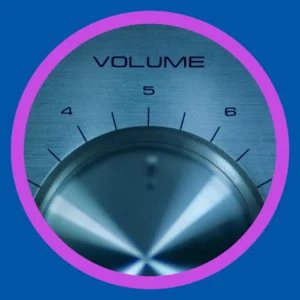Prevent Hearing Loss and Reduce Its Impact: 10 Tips
Hearing affects how you connect with others, stay safe, and enjoy life. Once hearing is damaged, it rarely returns. Fortunately, you can take action now to prevent hearing loss and reduce its long-term impact.
While not every type of hearing loss is preventable, most noise-related hearing loss is. Noise-induced hearing loss builds up slowly but permanently damages sensitive cells in your inner ear. By making small changes in your daily life, you can protect your hearing now and for years to come.
Discover the comorbidities of hearing loss.
10 Practical Tips to Prevent Hearing Loss

1. Protect Your Ears from Loud Noise
Loud noise is the leading cause of preventable hearing loss. Repeated exposure to high volumes harms the tiny sensory hair cells in the inner ear. Once damaged, these cells don’t grow back, and the hearing loss becomes permanent.
Common loud noise sources include:
- Fireworks, gunfire, and power tools
- Construction work and industrial equipment
- Music concerts, festivals, and nightclubs
- Motorcycles, airplanes, and emergency sirens
- Personal audio devices used at high volume
The louder the noise and the longer the exposure, the higher the risk of damage.
Use ear protection in noisy environments.
Foam earplugs, over-the-ear earmuffs, or custom-fitted musician’s earplugs can significantly reduce your exposure. If you work in a loud environment or enjoy loud hobbies like shooting or motorsports, combine earmuffs and earplugs for added protection.
Even brief exposure to sounds above 100 decibels can cause damage. Wear hearing protection whenever sounds reach unsafe levels.
Find out more about fireworks and hearing loss.

2. Turn the Volume Down on Devices
Listening to music, podcasts, or videos through headphones or earbuds can easily lead to hearing damage—especially when the volume is too high for long periods.
Stick to the 60/60 rule:
- Keep the volume at 60% of maximum or lower
- Listen for no more than 60 minutes at a time
Choose noise-canceling headphones instead of cranking up the volume to block outside noise. Avoid sleeping with earbuds in your ears, which keeps sound exposure constant for hours.
Teach safe listening habits to children and teens.
Hearing loss is becoming more common among young people due to unsafe listening practices. Help kids develop good habits now to avoid permanent hearing problems later in life.
3. Limit Exposure to Loud Environments
You can’t always avoid loud environments, but limiting your exposure helps protect your hearing.
Places that often reach unsafe noise levels include:
- Sports stadiums and concerts
- Airports and train stations
- Factories and construction sites
- Movie theaters and gyms
Even short bursts of high-volume noise can add up over time. If you’re in a loud setting:
- Move farther away from speakers or noise sources
- Step outside for short breaks to give your ears a rest
- Use a decibel meter app to check sound levels around you
Anything over 85 decibels can damage hearing. Sound levels in many public places often exceed that, even if it doesn’t feel “too loud.”
4. Support Heart Health for Better Hearing
Healthy blood flow supports hearing. The inner ear depends on strong circulation to function correctly. When circulation suffers, so does your hearing.
Conditions like high blood pressure, heart disease, and high cholesterol can restrict blood flow and harm the inner ear’s delicate structures. People with these conditions are at higher risk for developing hearing loss.
To support both heart and hearing health:
- Eat a balanced diet with fruits, vegetables, whole grains, and lean proteins
- Limit salt, sugar, and unhealthy fats
- Exercise regularly with activities like walking, biking, or swimming
- Monitor your blood pressure and cholesterol
Follow your healthcare provider’s guidance to keep heart conditions under control. What’s good for your heart is good for your ears.
5. Manage Chronic Illnesses Like Diabetes
Research shows that people with diabetes are more than twice as likely to develop hearing loss. High blood sugar levels damage blood vessels and nerves throughout the body—including in the inner ear.
To reduce this risk:
- Monitor your blood sugar daily
- Take prescribed medications as directed
- Eat a low-sugar, high-fiber diet
- Stay active to improve insulin sensitivity
Uncontrolled diabetes can silently affect your hearing over time. Don’t wait for symptoms to show—proactive management is key.
6. Stop Smoking and Limit Alcohol
Tobacco and alcohol both harm your hearing. Smoking restricts blood flow to the inner ear and increases your risk for hearing damage. Secondhand smoke has similar effects, especially for children.
Heavy alcohol use affects the auditory nerve and can create a toxic environment in the ear. Long-term alcohol use can also contribute to balance issues and tinnitus (ringing in the ears).
To lower your risk:
- Quit smoking with help from your doctor, support groups, or medications
- Avoid secondhand smoke as much as possible
- Limit alcohol to one drink per day (women) or two drinks per day (men)
Making these lifestyle changes helps protect your hearing and supports overall wellness.
7. Eat Nutrients That Promote Ear Health
A healthy diet can protect your hearing from damage and support ear function.
Focus on foods rich in:
- Potassium: bananas, potatoes, oranges, and spinach
- Magnesium: avocados, nuts, seeds, and leafy greens
- Zinc: pumpkin seeds, beef, and chickpeas
- Iron: lentils, red meat, tofu, and leafy greens
- Vitamin B12: eggs, dairy, meat, and fortified cereals
These nutrients help maintain the delicate hair cells in the cochlea, improve nerve function, and support healthy circulation in the inner ear.
Drink plenty of water and limit your intake of processed foods. A good diet supports hearing and contributes to your energy, memory, and immune function.
8. Know Your Family’s Hearing History
Your genes may play a role in how likely you are to develop hearing loss. If your parents, grandparents, or siblings have hearing loss, you might be more likely to experience it yourself.
This doesn’t mean hearing loss is inevitable. But it does mean you should:
- Monitor your hearing regularly
- Watch for early warning signs, like ringing or trouble following conversations
- Take preventive steps sooner rather than later
Knowing your risk can help you make smart choices to preserve your hearing.
9. Watch Out for Ototoxic Medications
Some medications are known to damage hearing. These include over-the-counter drugs, antibiotics, chemotherapy drugs, and certain heart or kidney medications. These drugs are called “ototoxic,” which means they can harm your ears.
Common ototoxic drugs include:
- Aspirin (at very high doses)
- Certain loop diuretics for heart failure
- Aminoglycoside antibiotics
- Cisplatin and other chemotherapy agents
If you take these medications:
- Ask your doctor if alternatives are available
- Get regular hearing tests during treatment
- Report any new hearing changes or ringing immediately
Never stop a prescribed medication without medical advice, but do ask questions about side effects.
10. Get Your Hearing Tested Regularly
Routine hearing tests are just as important as eye exams and dental checkups. Hearing loss often happens slowly. You may not notice changes until others point them out.
Schedule a hearing test if:
- You struggle to follow conversations
- Others seem to mumble more often
- You hear ringing or buzzing in your ears
- You frequently increase the volume on your devices
- You have a family history of hearing loss
Even if your hearing seems fine, a baseline test can catch early changes. If hearing aids are needed, starting early helps preserve clarity and mental sharpness.
At Stanford Hearing, we provide thorough evaluations and personalized hearing care for every age.
Learn more about checking your hearing.
Don’t Ignore the Warning Signs
Signs that sound is too loud include:
- You must shout to be heard
- You feel pain in your ears
- Speech sounds muffled afterward
- You hear ringing or buzzing afterward
Use decibel meter apps to check noise levels around you. If it feels too loud, it probably is.
Understand how undiagnosed age-related hearing loss impacts your life.
Your Ears Deserve Protection Every Day
Protecting your hearing is an investment in your health, relationships, and independence. By following these tips, you reduce your risk of noise-induced and age-related hearing loss.
To recap, here’s what to do:
- Use hearing protection in loud places
- Keep your volume low
- Take breaks from noise
- Eat a healthy diet
- Manage chronic illness
- Quit smoking
- Limit alcohol
- Avoid ototoxic medications
- Know your family history
- Get regular hearing tests
Each step helps protect your ears and prevent hearing loss from affecting your quality of life.

Ready to Protect Your Hearing?
Don’t wait for signs of hearing loss to take action. Be proactive. Protect your ears today.
Contact Stanford Hearing to schedule your hearing evaluation.
We offer expert care, friendly guidance, and long-term support to keep your hearing strong.
Let’s work together to prevent hearing loss and reduce its impact—for you and your future.
